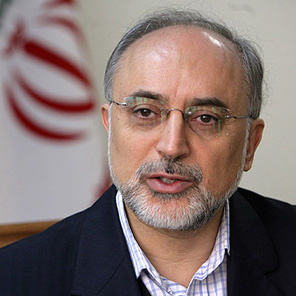Ashgabat Meeting, Prelude to Silk Road Revival

 IRD: What were the objectives of the five-party Ashgabat meeting, which was held on Monday?
IRD: What were the objectives of the five-party Ashgabat meeting, which was held on Monday?MS: Non-access to open waters and a lack of a convenient transit route has been one of the basic setbacks of the Central Asian economy during the last two decades. Central Asia is in dire need of a safe corridor for trade exchange and energy transfer, and Iran has the potential to respond to its needs. Iran, with its effective railway system, can link Turkmenistan and Uzbekistan to open waters and the Persian Gulf littoral states. This agreement can actually be a prelude to the Silk Road revival project.
The first round of meetings between foreign ministers of these countries was held last year, and negotiations led to signing of a transit agreement that creates an opportunity for collaboration, not only for these five countries, but also for other Central Asian and Persian Gulf states.
IRD: This route has serious rivals. What elements guarantee its efficiency and superiority?
MS: Traditionally there have been four basic transit routes which link the four corners of the world; the Russian for transportation or energy transfer, the western course which threads through Turkey, Caucasia and Turkey, the eastern route which passes through Afghanistan, Pakistan and China, and the southern route which is hosted by Iran.
Traditionally, the Russian route has been the primary option. Russia has signed long-term contracts with neighboring countries for goods and energy transfers. The western route has also been activated with Baku-Tbilisi-Çeyhan as an alternative energy transfer route. There have been negotiations over the eastern route. However, as many experts agree, Iran is the optimum path for Central Asian countries: it is the shortest and the most convenient to access open waters. Plus, it can also revive cultural and religious affinities between the parties involved.
IRD: Wouldn’t this contract vex rival hosts such as Russia?
MS: There are two points about the Iranian corridor: first, it is more of a goods transfer route, unlike its Russian counterpart. Second, it realizes a considerable commercial potential and Russians have proven to be pragmatic in such cases. As the agreement highlights, all airports and transportation equipment through the route should be enhanced. Russia can invest in this route, as it did in the rival Baku-Tbilisi-Çeyhan energy pipeline. It can be a win-win game. Moreover, a north-south corridor that connects Russia and Arab countries has been discussed for a long time and this can be the opportunity for its realization.
IRD: How does a transit route fit in our regional policy?
MS: The government’s move was a clever diplomatic measure and in line with regionalism, which has been a priority of our foreign policy. Another meeting was held between Azerbaijan Republic, Iran, and Turkey in Urmia [in northwestern Iran], which focused on investment in transit routes. This can turn into a key feature of Iran's foreign policy.

